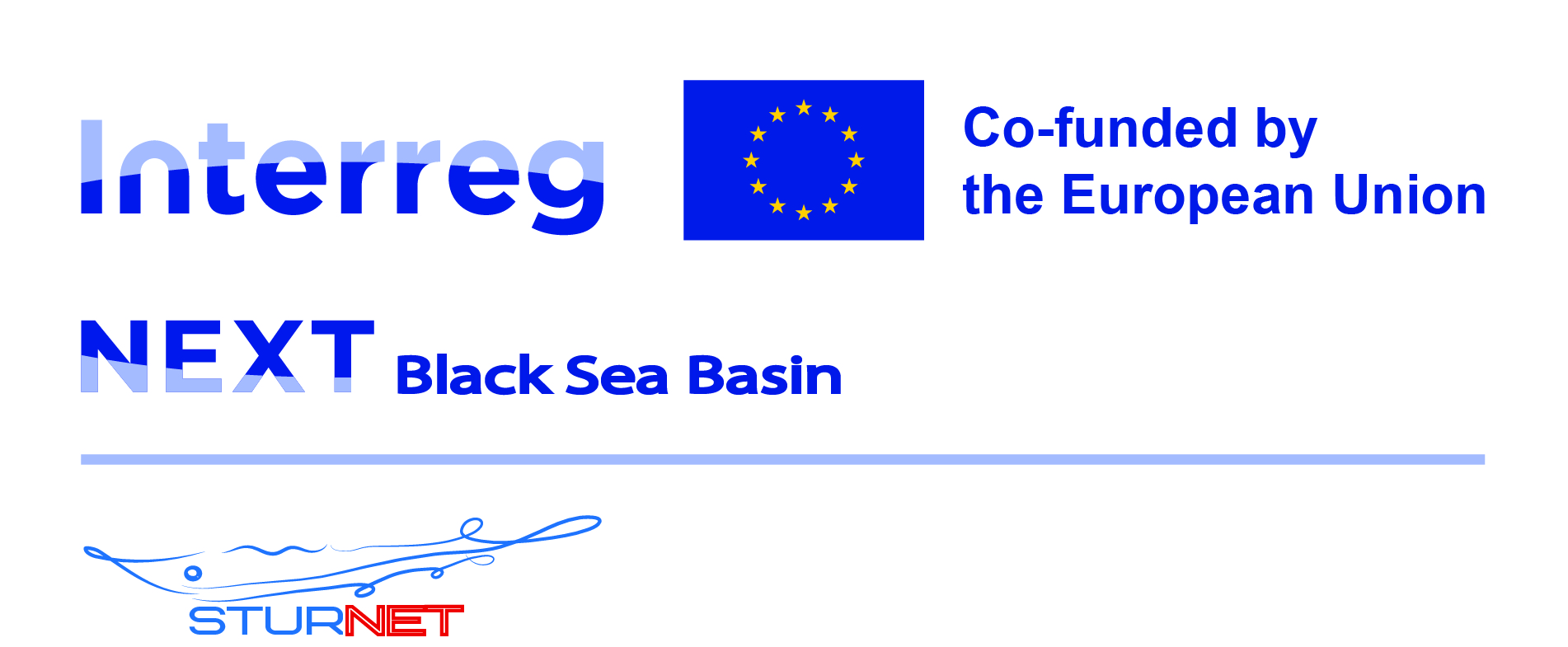Proiecte
SturNet: Network for the Preservation of Sturgeon and the Sustainability of the Black Sea Basin Ecosystem

| Responsabil: | Dr. Ana-Bianca Pavel, CSII |
| Coordonator: | Protection of biodiversity in Bulgaria Foundation, Bulgaria |
| Beneficiar: | GeoEcoMar |
| Finanțator: | European Commission |
| Schema de finanțare: | Interreg NEXT |
| Durata: | 30 months |
| Data începerii: | 27.08.2024 |
| Data finalizării: | 28.02.2027 |
SturNet: Network for the Preservation of Sturgeon and the Sustainability of the Black Sea Basin Ecosystem
Sturgeons represent highly valuable faunistic resources, constituting a significant source of income and employment in the Black Sea basin. However, threats such as water pollution, habitat destruction, illegal harvesting, and trade endanger their survival. Sturgeon populations in major basins have declined by 70% over the past century, particularly in the Danube River and its Delta. The SturNet project aims to protect sturgeon populations and conserve the unique ecosystem of the Black Sea basin. Through collaborative research, data collection, and model development, our habitat conservation efforts will support the sustainable development of the region’s natural resources. The project aims to address these issues by developing a free digital mapping tool that provides information on sturgeon behavior and migration routes.
One of the main objectives and result of the project is to develop, pilot and provide an innovative digital toolkit that will be able to provide free interactive information on the spawning zones and periods of sturgeon species to key stakeholders.
The project results also include the preparation of 6 joint policy documents for the conservation of sturgeons in the Black Sea, as well as 2 scientific publications for research on the dynamics of sturgeon populations, which will contribute to the scientific understanding and conservation of these species.

